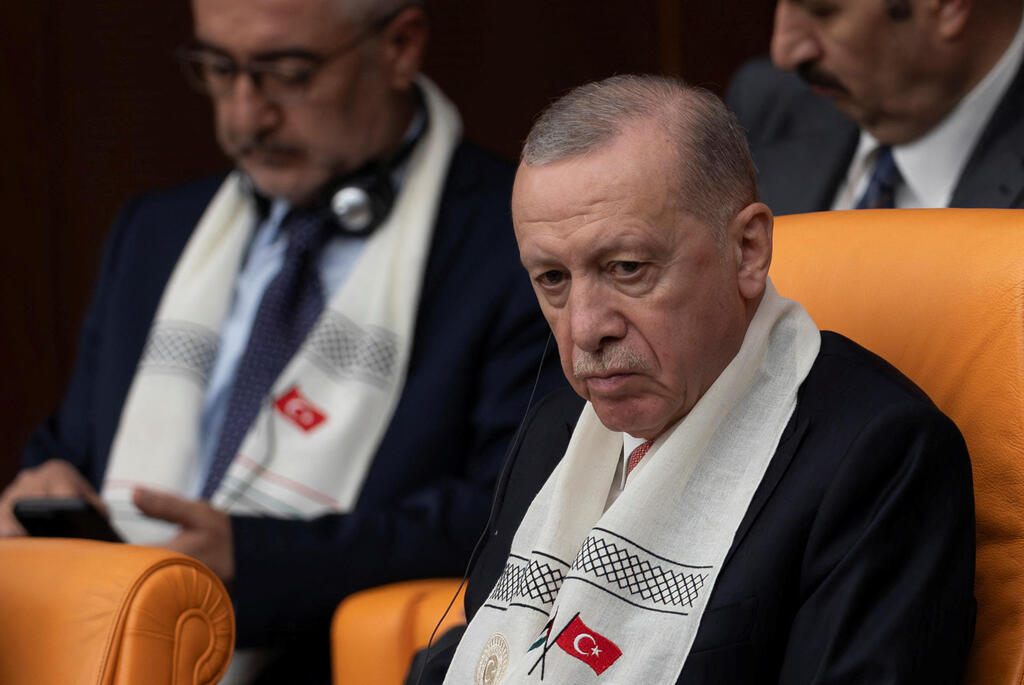Getting your Trinity Audio player ready...
Not only did the Assad regime collapse, but the entire 'Axis of Resistance' is showing signs of progressive disintegration. For over a decade, Syria has been in a terrible, bloody civil war. Assad committed a real genocide against his own people. It had everything: torture chambers, forced population transfers, detention and death camps, nerve gas attacks against civilians, and even a crematorium where the bodies of the murdered prisoners were burned.
Assad's forces retreat from Homs
At different stages of the war, three different factors came to Assad's aid. The first is, of course, Vladimir Putin, who made a decision that Syria, as a protectorate of Moscow, would not fall. What happened to Moammar Gadhafi would not happen to Bashar Assad.
The second is Iran's supreme leader, Ali Khamenei. Iran saw Syria as a space of strategic depth, and the existence of the regime there was essential to the survival of the entire axis of resistance. Without Damascus, Iran's most important branch in the Middle East, the terrorist organization Hezbollah would have remained isolated and stifled, and it would not have been possible to transfer there heavy weapons, equipment and training personnel.
The third, surprising factor is the West. Former U.S. President Barack Obama decided to trample on the red line he had set, which forbade Assad from using chemical weapons against his own citizens. It was a dramatic moment, not because of the damage that could have been done to the Assad regime, but rather the signal that the rebels received under his rule.
The uprising against Assad began with Arab Spring-style demonstrations, and the masses carried banners (also) in English, including a call for the world to intervene. When Obama decided to accept Putin's deal, and settle for dismantling Syria of its nerve gas (something that is doubtful to have happened in its entirety), he conveyed a message to the Syrians: You are on your own.
I walked with Syrian refugees in Europe, from the shores of the island of Kos in Greece, through green fields in the Balkans and Hungary, and also in Germany. They told me about their sense of utter despair, about their destroyed country, and most of all about Assad. The Syrian dictator is responsible for about 90% of all those killed and murdered in the war. "And no one cares in the world," a young Syrian woman told me on the train to Budapest.
Syria has not sparked demonstrations and protests around the world. No one has boycotted Russia for its support of a brutal tyrant and his massacres, and no prestigious campus has had buildings taken over in protest. Syria is not an important country, nor is it a country with a Jewish majority and democracy in the Middle East. More than a third of its residents have fled or been expelled from the country, half of its residents have lost their homes, and several examples of ethnic cleansing have been carried out there.
The West was shaken only when the refugee crisis shook Europe, affected Brexit, and made its way to Donald Trump's election ads in 2016. The problem was resolved in a quiet agreement with the Turks, so that they would prevent Syrians from arriving in the EU.
This history is important to understand how we got to this dramatic moment. The fall of Assad is equivalent to the fall of the Berlin Wall in the Middle East. Not because of him, a weak and failed dictator, but because of what he symbolizes. Hezbollah was badly beaten by Israel, and the Iranians were beaten too - and they feared a humiliating defeat in Syria. It was better for them to say they were not intervening than to intervene and lose, especially when Assad's soldiers are dying en masse and have not fought a single serious battle against the rebels.
Dr. Raz Zimmt, one of the world's leading Iran experts, told me last night that some of the Islamic Republic's media outlets have already begun to use softened terms regarding the rebels. From "rebels" they have become "armed opposition". Moscow has also despaired of the Syrian regime's conduct and is busy with the war in Ukraine.
Everyone was surprised, including our military intelligence
The developments are a tectonic surprise. The Turks are the patrons of the main rebel body, which is a reincarnation of al-Qaida/ISIS, under a seemingly pragmatic guise, one that gives CNN interviews and promises pluralism. They did not foresee their rapid advance and the collapse of the regime. Neither did Tehran and Moscow, but neither did the IDF's Intelligence Directorate and the Mossad. With all due respect to other intelligence services, the Israeli assessment should have been better.
In fact, Israel has built an entire perception based on the assumption that Assad is stable, that Russian support for him is solid, and that “the Syrian army is recovering,” an assessment that was prevalent until recently. This understanding has led Israel to court Russia and to probe Assad’s environment, so that it can be swayed from supporting Hezbollah.
Israel intended to include Russia in the arrangement in Lebanon and to establish a deal where Assad remains stable in exchange for cutting off Hezbollah's reconstruction. It was an attempt to drive a wedge into the axis of resistance. The efforts were based on a series of assumptions, which came from seemingly well-founded information. There appeared to have been a stalemate in Syria and Assad has become more legitimate, and stronger.
The IDF has had indescribable successes in recent months in Lebanon, and not only there. However, it did not foresee the swift crumble of the regime, the advance of the rebels, and the circumstances that surrounded the affair. Israel's political echelon should have known about the unfolding progress but instead they were building barbed wire fences on a regime that does not really exist.
Get the Ynetnews app on your smartphone: Google Play: https://bit.ly/4eJ37pE | Apple App Store: https://bit.ly/3ZL7iNv
The Israeli dilemmas are difficult. Those who are stationed on the Israeli border in the Syrian Golan are not the Islamist HTS members, but the groups there are not much different. One of the possible courses of action would be to seize territory in the Syrian Golan as a security zone or to announce a demilitarized zone on the Syrian side and enforce it using artillery and air fire.
Turkish President Erdogan is the leader who exerts the most influence on the rebel leaders in Syria and a common border with him does not appeal to the Israeli leadership. The rebel leader, Abu Muhammad al-Julani, began his jihadi path following the second intifada in Israel. According to him, this is what inspired him to join al-Qaida in Iraq.
Many Syrian rebels have claimed for years that Assad is supported by Israel, a matter that I have heard myself from many followers. This is the Middle East, on one hand the axis of resistance is failing, but the fundamental Sunnis are around the corner. On Saturday, the rebels already promised not to massacre the Alawites, and to rebuild a Syria that respects all its ethnic groups. These are signs they are trying to change their behavior from the ISIS era, but it is too early to be optimistic.









